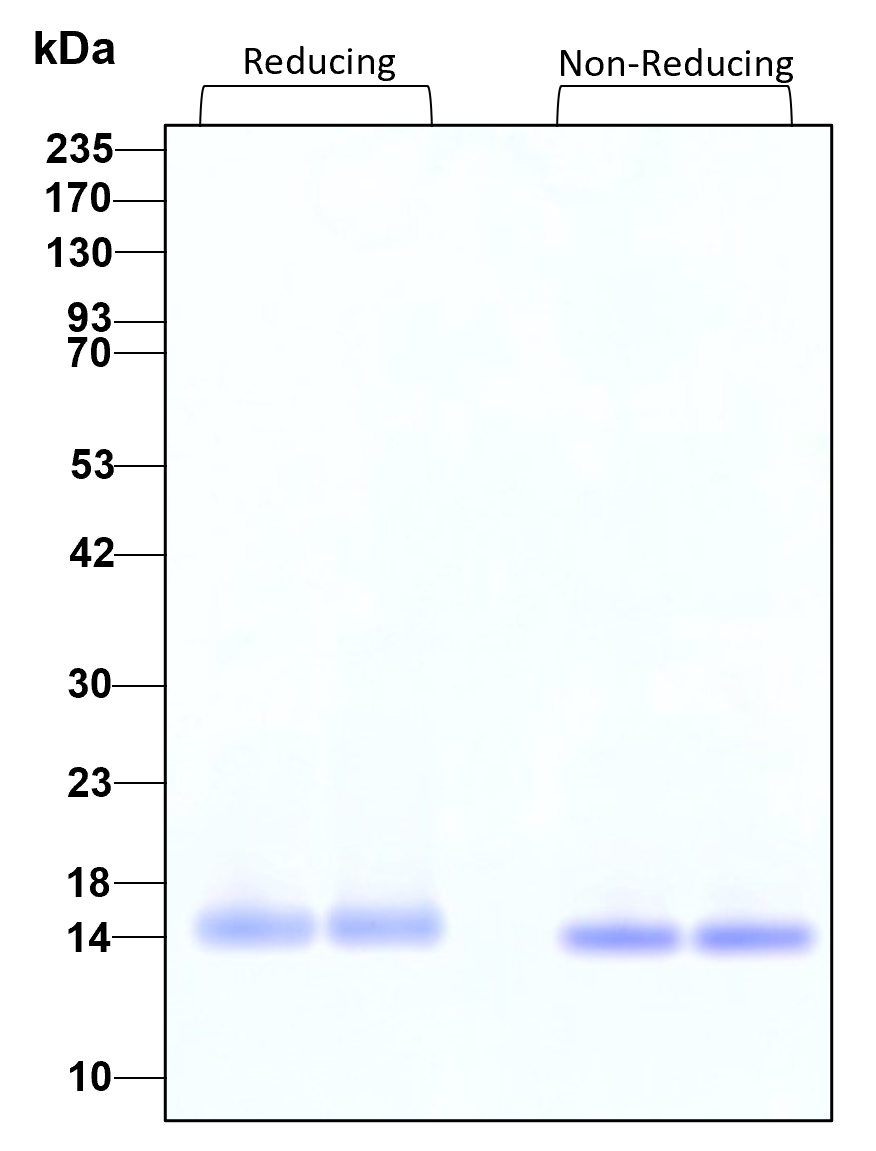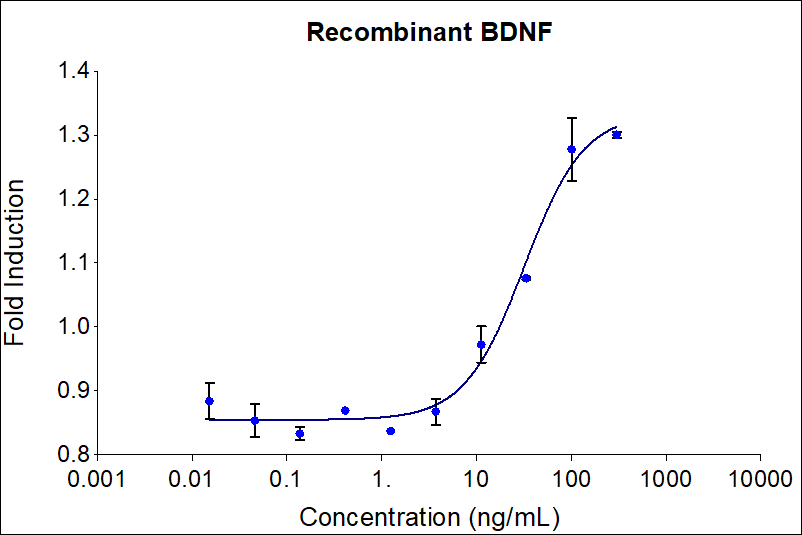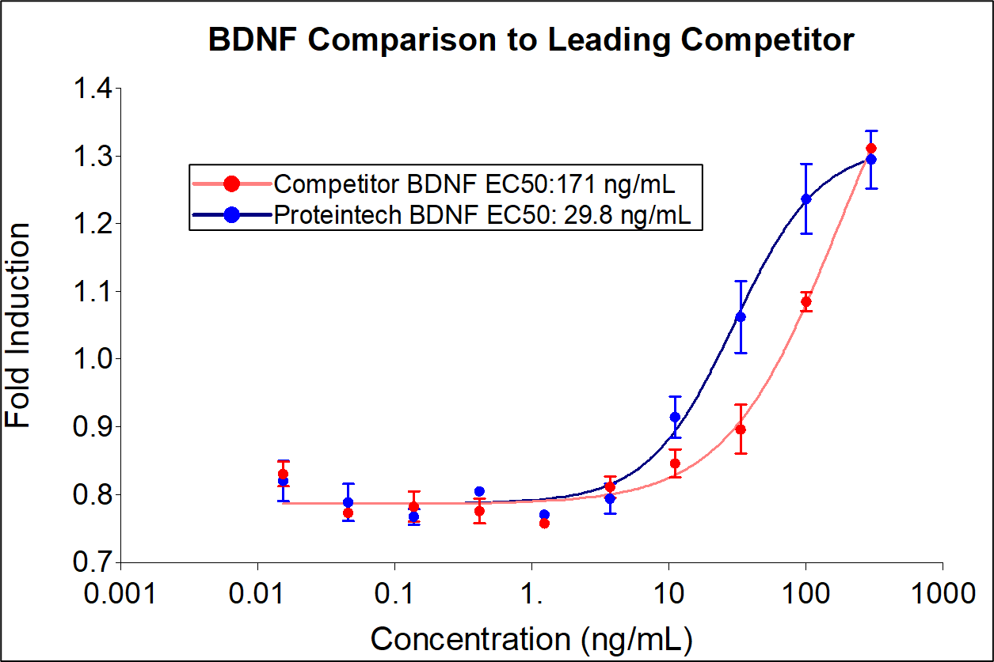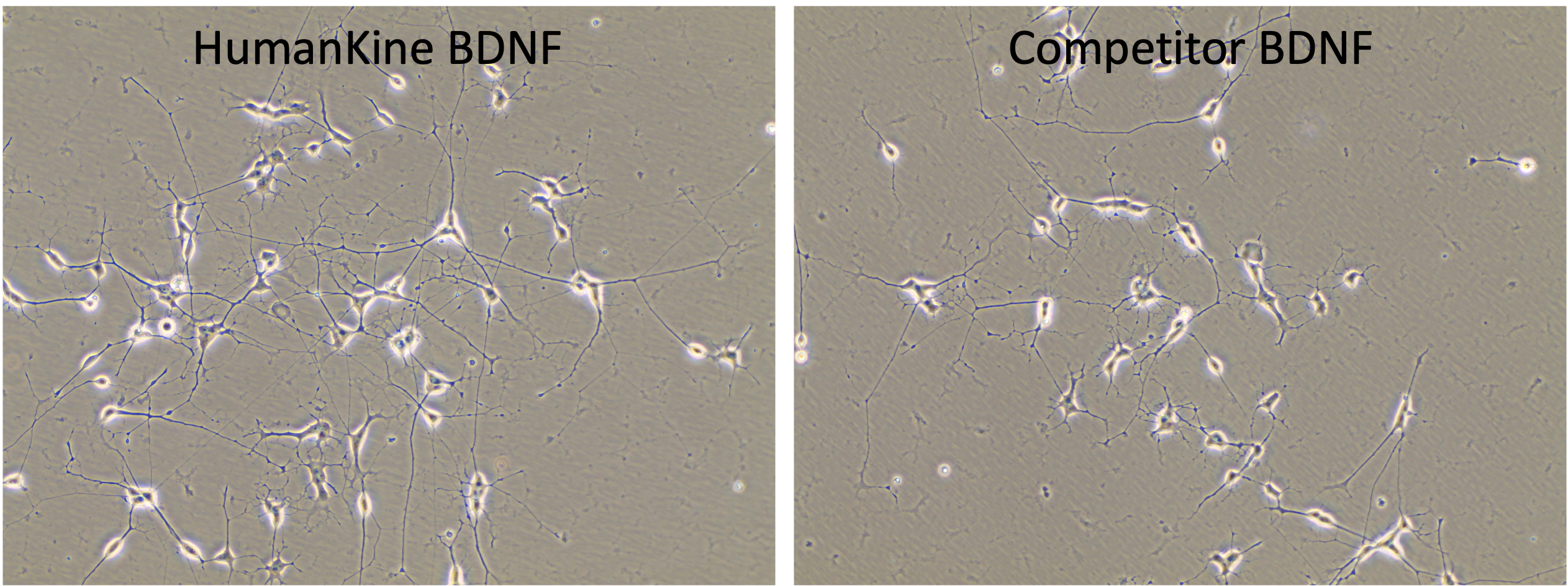- HEK293 expressed
- Endotoxin-free
- Animal-component free
HumanKine® recombinant human BDNF protein
Activity
4-40 ng/mL
Specific Activity
minimally 3.00 x105 IU/mg
Species Reactivity
human
Purity
>95%
Cat no : HZ-1335
Synonyms
Abrineurin, ANON2, brain-derived neurotrophic factor
Validation Data Gallery
Technical Specifications
| GeneID | 627 |
| Species | Human |
| Expression | HEK293 |
| Activity | 4-40 ng/mL |
| Specific Activity | minimally 3.00 x105 IU/mg |
| Purity | >95% |
| Endotoxin | <1 EU/μg |
| Accession Number | P23560 |
| Molecular Mass | 14 kDa reduced and non-reduced, homodimer, non-glycosylated |
| Formulation | 10 x PBS pH 7.4 See Certificate of Analysis for details |
| Species Reactivity | human |
Stability and Reconstitution
| Stability and Storage | Product Form | Temperature Conditions | Storage Time (From Date of Receipt) |
|---|---|---|---|
| Lyophilized | -20°C to -80°C | Until Expiry Date | |
| Lyophilized | Room Temperature | 2 weeks | |
| Reconstituted as per CofA | -20°C to -80°C | 6 months | |
| Reconstituted as per CofA | 4°C | 1 week | |
| Avoid repeated freeze-thaw cycles. | |||
| Reconstitution | Briefly centrifuge the vial before opening. It is recommended to reconstitute the protein to 0.2 mg/mL in sterile 1x PBS pH 7.4 containing 0.1% endotoxin-free recombinant human serum albumin (HSA). Gently swirl or tap vial to mix. |
Background
Brain-derived neurotrophic factor (BDNF) is a member of the neurotrophin family, which also includes NGF, NT-3, NT-4, and NT-6. It plays a critical role in the survival, differentiation, and maturation of neurons during development. It is primarily expressed in various regions of the brain including the hippocampus, amygdala, cerebellum, and cerebral cortex. BDNF binds with the TrkB receptor, which results in the activation of downstream pathways controlling neural plasticity, neurogenesis, and stress resistance. It may also play a role in promoting angiogenesis and endothelial cell survival. Decreased levels of BDNF have been associated with several neurodegenerative diseases such as Parkinson’s, multiple sclerosis, and Huntington’s disease.
Synonyms
Abrineurin, ANON2, brain-derived neurotrophic factor
Publications
| Species | Title |
|---|---|
Mol Metab Crosstalk between the muscular estrogen receptor α and BDNF/TrkB signaling alleviates metabolic syndrome via 7,8-dihydroxyflavone in female mice. | |
Hum Cell Establishment and characterization of ZJUCHi003: an induced pluripotent stem cell line from a patient with Temple-Baraitser/Zimmermann-Laband syndrome carrying KCNH1 c.1070G > A (p.R357Q) variant | |
Adv Sci (Weinh) Integration of Functional Human Auditory Neural Circuits Based on a 3D Carbon Nanotube System | |
Biomed Pharmacother Intratympanic injection of MSC-derived small extracellular vesicles protects spiral ganglion neurons from degeneration | |
Sci Rep BDNF improves fracture healing through promoting osteoblasts proliferation and migration via trkb/akt regulated NUCKS1 expression |




